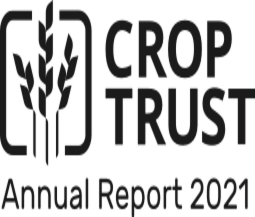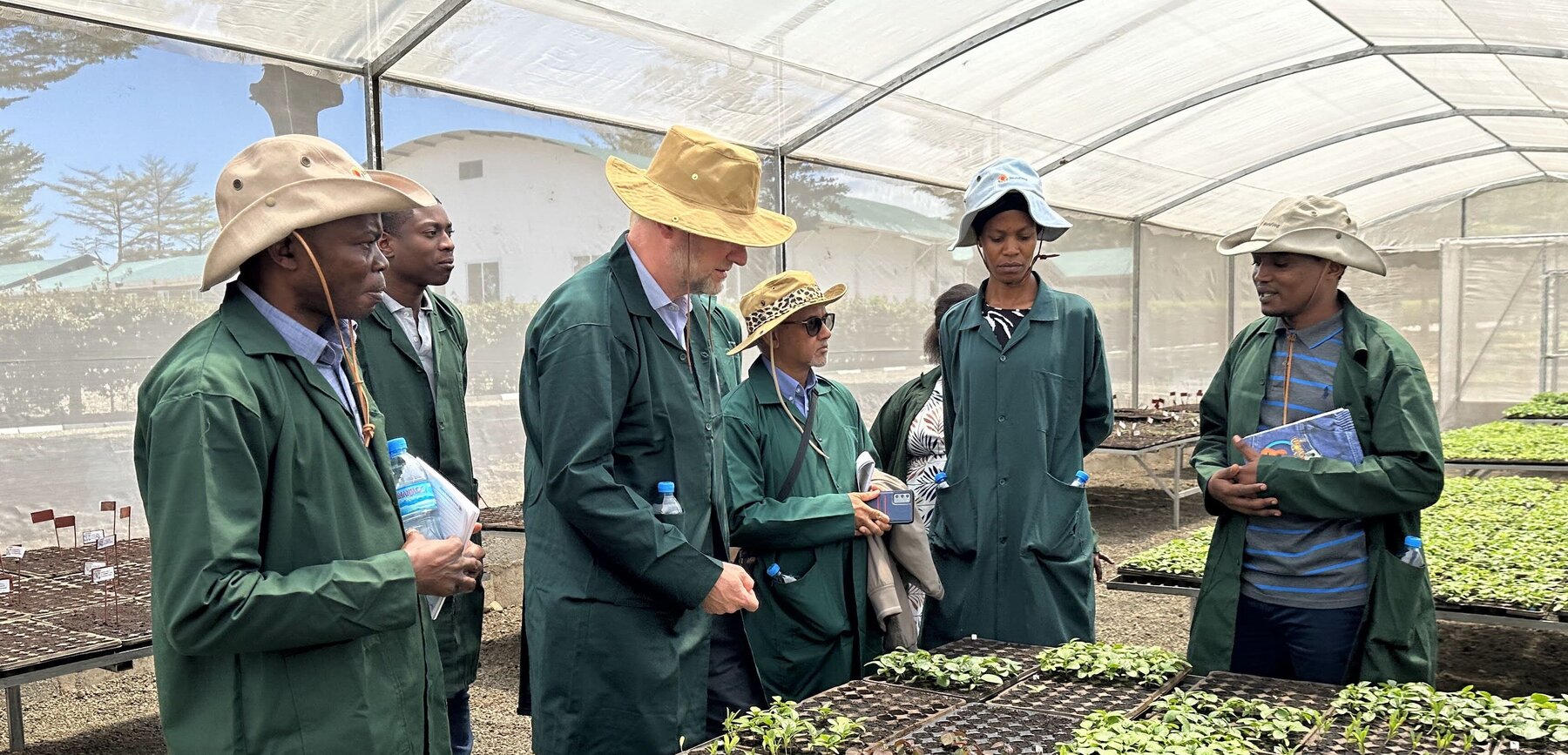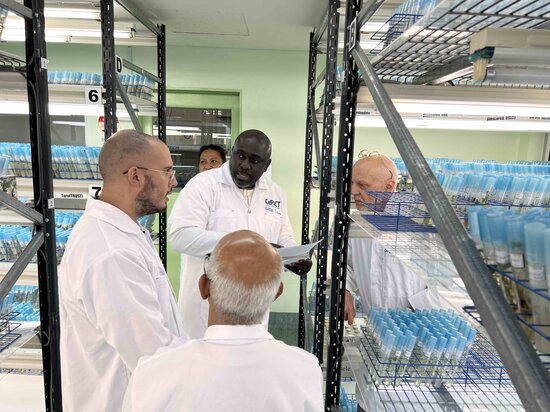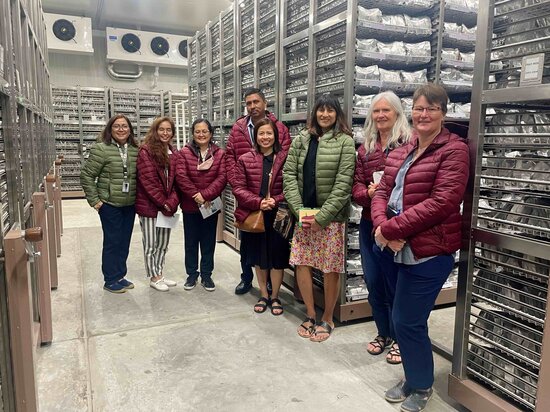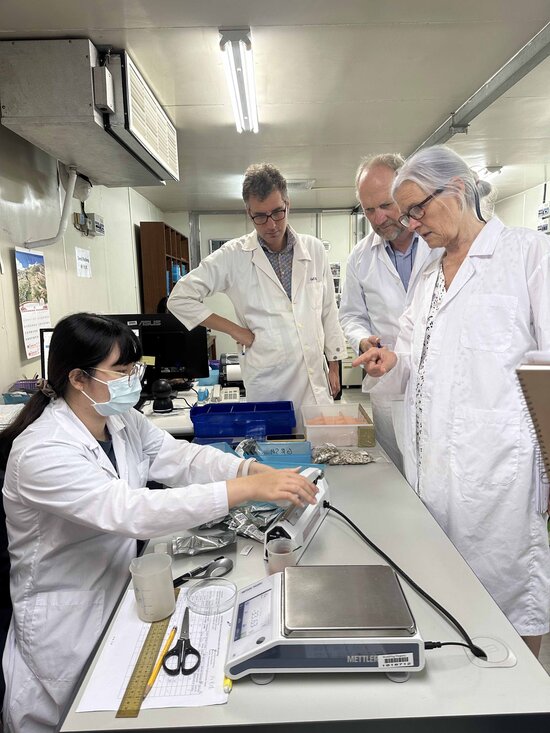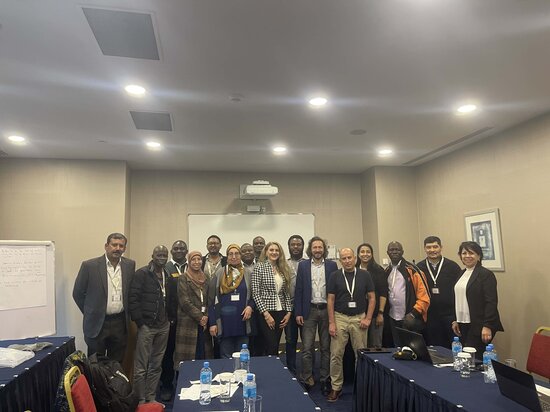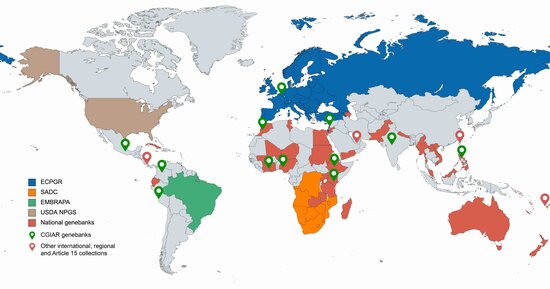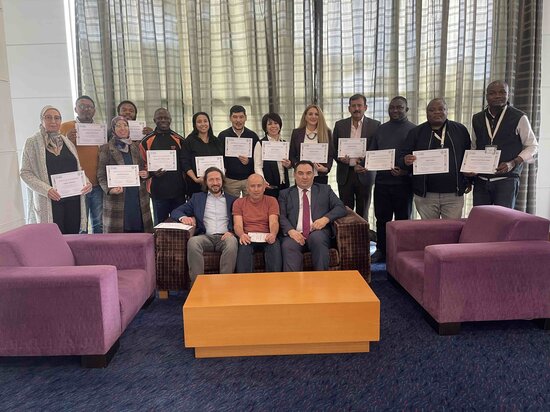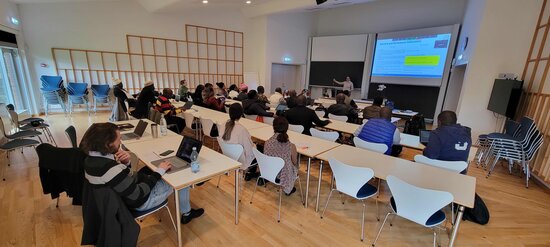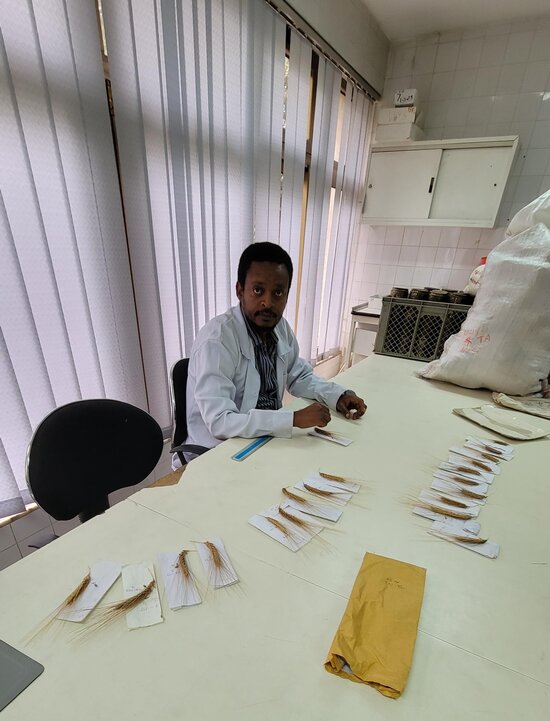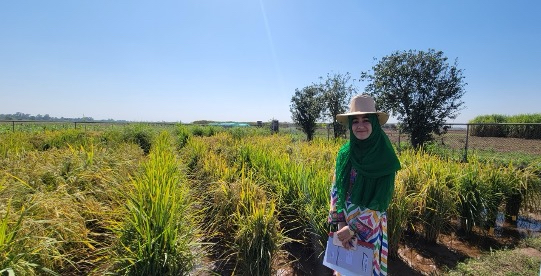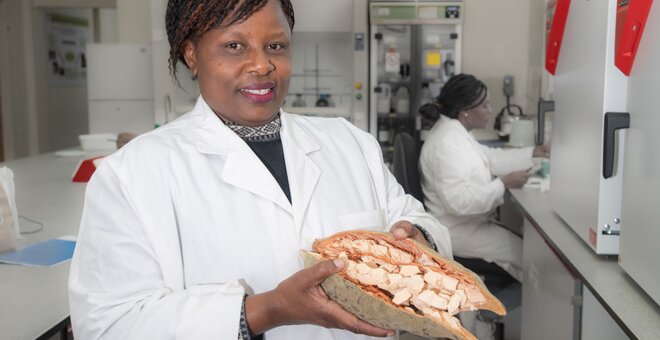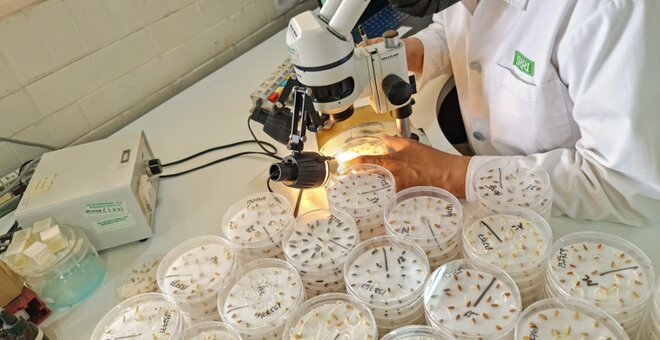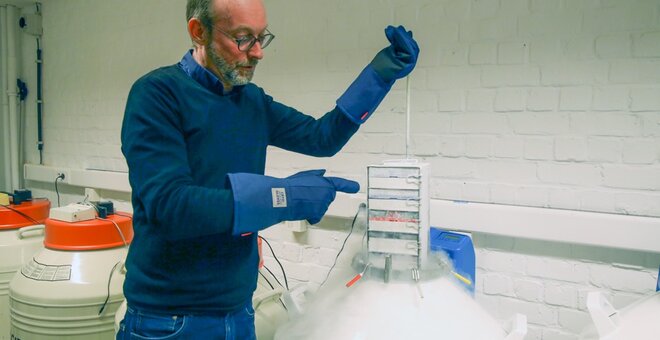System Development: Towards a Global Genebank System
Long-term Support of Individual Genebanks
Genebanks need to work together to ensure the long-term conservation, availability and use of crop diversity. Through the Global Genebank Partnership (GGP), the Crop Trust facilitates technical collaboration and knowledge sharing all around the world.
The GGP is intended to provide a platform for partners to strengthen a rational, cost-efficient global system of conservation of crop diversity that can provide timely, scalable solutions to the interrelated global challenges of food and nutritional security, climate change and biodiversity loss.
The GGP builds on the success of the CGIAR Genebank Platform (2017‒2021) by engaging additional international and national genebanks while continuing to focus on a clear set of priority activities. It serves as a framework that underpins all the Crop Trust’s technical programme.
The Crop Trust provided more than USD 5.4 million during the year for the long-term support of crop collections held by the international genebanks, including the CGIAR genebanks. The Crop Trust also contributed to the operations of the Svalbard Global Seed Vault, which is a crucial component of the global genebank system as the ultimate safety back-up for crop diversity.
As part of its monitoring and evaluation function, the GGP facilitated the reviews of three international genebanks in 2023: the Centre for Pacific Crops and Trees (CePaCT), International Rice Research Institute (IRRI) and the World Vegetable Center. The genebank reviews assess progress in achieving key performance indicators, ensure compliance with the Food and Agriculture Organization (FAO) genebank standards and confirm eligibility for long-term support. In 2023, new Long-Term Partnership Agreements (LPAs) were signed with International Institute of Tropical Agriculture (IITA) in Nigeria and the Alliance of Bioversity International and International Center for Tropical Agriculture (CIAT) in Colombia.
Meanwhile, a Joint Funding Facility was established together with the International Plant Treaty to mobilize resources for Article 15 collections that are not part of the One CGIAR system. Additional funds have been secured to support the rescue and rejuvenation of the international collections of coffee in Costa Rica and cocoa in Trinidad and Tobago.
In 2023, the GGP provided support to the Independent Advisory and Evaluation Service (IAES) for the review of the CGIAR Genebank Platform. The extremely positive evaluation report highlighted the enhanced efficiency and effectiveness of the CGIAR genebanks.
Genebank reviews play a crucial role in ensuring the long-term availability of crop diversity for future generations. They validate the conservation status of crop collections and assess efficiency and effectiveness in genebank operations and management. The reviews identify strengths and weaknesses, enabling targeted improvements and strategic planning, and promote transparency and accountability in the conservation of valuable plant genetic resources.
Genebank Data: Just A Click Away
The Crop Trust supports the management and availability of information on crop diversity at the global scale through the online platform Genesys, and internally in genebanks with the freely accessible, open-source software GRIN-Global Community Edition (GGCE). Both systems contribute to the Global Information System (GLIS) of the International Plant Treaty.
The development and maintenance of Genesys and GGCE are supported by the Crop Trust Endowment Fund and enhanced with project funding and partner contributions.
Genesys publishes information on 4.3 million accessions from 52 data providers on behalf of 513 genebanks. A total of 13 new genebanks agreed to share data on the platform in 2023. Twelve of them are BOLD Project partners: Azerbaijan, Cuba, Egypt, Laos, Lebanon, Madagascar, Morocco, Pakistan, Tanzania, Uganda, Vietnam, Yemen. Niger also agreed to publish data on Genesys. In 2023, the Crop Trust assisted 36 genebanks with data cleaning and publishing through webinars, workshops and the helpdesk.
A total of 535 new users signed up to Genesys in 2023, and 246 requests for material were relayed to partner genebanks.
Embedded Genesys is our solution to make data from Genesys visible on other websites. IITA, the International Livestock Research Institute (ILRI), the World Vegetable Center, the International Center for Biosaline Agriculture (ICBA) and Nigeria’s National Centre for Genetic Resources and Biotechnology (NACGRAB) are using Embedded Genesys on their own institutional websites to highlight and promote their genebanks.
GGCE is an integrated data management system for internal use in genebanks to support their workflows. It facilitates barcoding of the collection and makes it possible for all genebank staff to directly interact with data as part of their daily work. During the year, the GGCE website was released, with user manuals and guides.
Our Genebank Information Systems team further developed and documented GGCE, while providing support to genebanks for evaluation and adoption of the software. The Crop Trust assisted IITA, CePaCT, Kenya’s Genetic Resources Research Institute (GeRRI) and Nigeria’s National Centre for Genetic Resources and Biotechnology
(NACGRAB) to adopt GGCE for managing all or part of their collections, following in the footsteps of the World Vegetable Center and CIAT, which started doing so in 2022.
The Crop Trust convenes the Community of Practice on Data Management to discuss and resolve issues related to data-driven management of genebank collections and the publication of genebank data for use in breeding and research. Monthly meetings are organized separately for English, Spanish and French-speaking members of the community, which welcomed 36 new members from 20 genebanks in 2023, bringing the total to 133.
The team also organized two week-long regional workshops on genebank data management, including the use of Genesys and GGCE: one for Latin American genebanks in Uruguay and one for the Near East and North Africa (NENA) in Azerbaijan.
In 2023, our collaboration with the Crop Trust was fundamental for migrating the management of our bean collection to GGCE. The strong backend development team at the Crop Trust, together with the mobile apps for barcode scanning and printing made by our team, will enable us to create a system that supports best practices for inventory management really robustly.
Genebank Quality and Risk Management
The Crop Trust strives to raise quality standards in national and international genebanks through partnerships and projects.
In 2023, our partners made significant strides towards implementing a more robust quality management system (QMS) to consistently deliver crop diversity and services that meet user expectations. Through in-person and online events, partner genebanks develop their capacity to continuously improve their administrative, technical and operational performance in alignment with established standards.
During the year, the Crop Trust organized a range of events to help improve genebank quality and risk management.
Three in-person Genebank Operations and Advanced Learning (GOAL) workshops were organized in Morocco, Germany and Ethiopia with the objective of building the capacities of national and regional genebanks to manage crop diversity in alignment with international standards and agreements.
Thirteen QMS Community of Practice presentations were organized for national partners in 2023. The monthly online sessions tackled various technical aspects of conservation and allowed staff to discuss topics such as the new FAO Practical Guides, post-entry quarantine management and phytosanitary regulations, distribution standards, collecting procedures, the preservation of genetic integrity and risk management.
In addition, four in-person “QMS intensives” were held in Ethiopia, Ecuador, Azerbaijan and Pakistan. The purpose of the QMS intensives is to provide hands-on assistance to technical staff in the development of QMS documentation and to support improvements in the overall workflow and operational efficiency. On-site visits were organized to evaluate and validate procedures against essential QMS elements and established standards.
The Crop Trust also offered a QMS audit program for distribution, collecting and information management. The program was intended to help partners comply with FAO Genebank Standards (2014), FAO Practical Guides (2022) and all relevant international treaties and conventions. Documentation audits were executed remotely on standard operating procedures (SOPs) to provide the first step toward the technical examination of conservation methodologies and their adherence to relevant standards. Seventeen SOPs from 17 national genebanks were audited and improved in 2023.
In 2023, five Genebank Resources on the Web (GROW) webinars were organized to tackle new issues in the conservation and use of plant diversity, and the role of genebanks. Topics included responsive agriculture, increasing the benefits from plant breeding, breaking seed dormancy, expanding cryopreservation and the bioeconomics of plants.
The experience gained by seedbank staff through QMS training under the Seeds for Resilience project has laid a solid foundation for genebank management, which will enhance operational efficiencies for many years to come.
